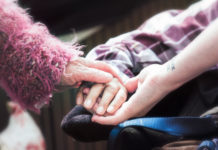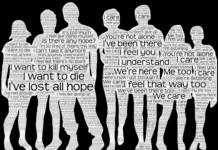How to Promote Community Inclusion in Mental Health Practice
Practitioners and public leaders identify methods and barriers for integrating those diagnosed with mental health issues into community life.
Collaboration with Consumers of Mental Health Services Improves Quality and Value of Research
A new study examines the benefits of collaborating with mental health consumers in research.
When International Psychiatric Aid Gets it Wrong: Street Children in Cairo
Study questions how international psychiatric treatment of street children in Cairo could be reinforcing their marginality and vulnerability.
Belongingness Can Protect Against Impact of Trauma, Study Suggests
A new study explores feelings of belongingness as a protective factor for childhood trauma and adult mental health outcomes.
Therapist Empathy Predicts Success in Psychotherapy
An updated meta-analysis reveals that therapist empathy is a predictor of better psychotherapy outcomes.
Mental Health Service Users’ Perspectives on Family-Focused Recovery
Study explores a multifaceted approach to promote family-focused recovery practice.
Exploring the Role of Community Engagement in School Psychology
New research emphasizes the impact of school connectedness and community engagement interventions on students' mental health.
Outcomes of Childhood Bullying on Young Adults’ Wellbeing
A qualitative study explores young adults’ childhood bullying experiences.
Learning From Each Other As Psychiatric Survivors
I'm drained by talking to people who might be first discovering basic truths about the mental health system that I've been aware of for over 15 years. But my excitement comes alive when I consult with people recently off of psychiatric meds who are interested in doing work similar to me, mentoring others about coming off of psych drugs.
How Stigma and Social Factors Drive the Negative Health Outcomes Associated with Autism
A new study explores the interplay between social stress and quality of life for individuals self-identified with high-functioning autism.
Correcting Misconceptions of Trauma-informed Care with Survivor Perspectives
Trauma-informed approaches have the potential to promote recovery but must involve survivors and service-users to prevent the experience of retraumatization within psychiatric and mental health services.
What Happened When I Went Off Meds and Onto Nutrients
I remember clearly thinking, “I’m done. I’m not putting myself through this again.” I wasn’t going to settle for the side effects of a marginally better than placebo treatment again. Here is a brief look into my rollercoaster journey of recovery, returning to work, having my trauma re-triggered, finding a way through, and finally living well.
Community-Driven Healthcare for the Homeless Reduces Hospital Costs
Direct access to care in safe locations is key in reducing healthcare costs and increasing quality of life for homeless populations.
What’s Blocking Progress in Behavioral Healthcare?
It's time to stop blocking progress and give peer-run organizations the same access to the funding streams used by Community Mental Health Centers. There is no reason to give more money to the people who have had all the money all along and can't solve the problems. Open up the competition, and then see what kind of amazing developments occur.
DACA has “Immediate and Positive” Impact on Lives of Immigrant Students, Study Finds
New research demonstrates the benefits and complexities for immigrants transitioning from undocumented to DACA status.
Building a Support Network for Peer Workers in NYC
Peer Workers are actively organizing in New York City. This is significant because the mental health system is failing Peer Workers on so many fronts, and it’s long overdue that we start organizing support for ourselves. Peer work started from a social movement on the streets and has ended up a marginalized and co-opted role in a broken system.
Peer Support Reduces Chances of Psychiatric Readmission
A randomized control trial finds that receiving peer support from individuals with similar lived experiences reduces one’s risk of readmission to an acute crisis unit.
Deadly Serious: Talking Openly About Suicide
The suicide crisis is real. The pain is real. The deaths are real. None of us can afford to stick our heads in the sand and pretend that this isn't happening. But the helplessness and confusion about what to do about it are also real. And that's why peer relationships and peer-developed modalities can be so helpful. Many of us have been there and are still alive to talk about it. We know what ways of relating gave us hope and helped us to continue on.
Suicidal Tendencies, Part III: So, When Do I Get to Call the Cops?
What if the key to saving someone is to admit you are powerless to save anyone at all? What would that beckon us to change? A few years ago, I spent a substantial amount of time talking with a man who entered my life because someone in the mental health system told him I might be the one who could save him (or at least, that’s how he heard it). His name was David.
The Effect of Psychiatric Diagnosis on Young People’s Sense of Self and Social Identity
A new review highlights the effects that psychiatric diagnosis has on children and adolescents’ social relationships and views of self.
Searching for Zen and Finding a Cow
If I had a clinical problem, why was something as ancient and simple as meditation helping me? And if normal positive human habits could be so profoundly useful, why the heck was the field marketing pills and “clinical” coping mechanisms to me instead? This frustration helped me jump ship from the medical mindset and hop into the world of humanity.
Former Service User Studies the Inpatient Experience
Researcher and former service-user Diana Rose utilizes a participatory research process to examine experiences on inpatient wards.
Early Attention to Life Circumstances and Relationships Improves Outcomes for Psychosis
Coordinated care with employment support and family therapy leads to superior outcomes for those diagnosed with psychotic disorders.
Using the Power Threat Meaning Framework in Mental Health Nurse Education
Scholars call for international mental health nurse curriculum to shift to a rights-based approach and teach the Power Threat Meaning Framework.
Are Students Benefiting From the Growth Mindset Model?
Results from two meta-analyses reveal shortcomings with the growth mindset theory as applied in schools.

































